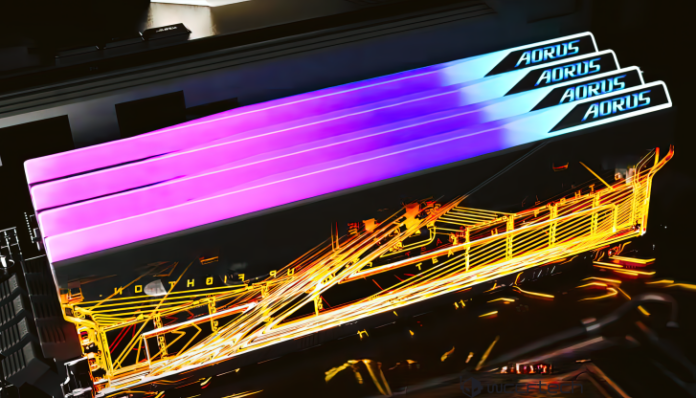
Gigabyte has released a new BIOS firmware for its Intel 600 & 700 series motherboard to address various DDR5 memory corruption issues.
Gigabyte Intel Motherboards Prone to Bug That Deteriorates Connection With DDR5 Memory Modules
The firmware update specifically addresses a bug that disrupts SPD (serial presence detect) data within the DDR5 memory that's responsible for XMP/EXPO profiles which leads to Gigabyte's 600 and 700-series motherboards not recognizing memory modules properly.
GIGABYTE issued a statement on the DDR5 motherboard "burning" memory SPD information event, recommending that users update BIOS and GCC softwarehttps://t.co/YJCixNecNf
— 포시포시 (@harukaze5719) September 5, 2023
The issue initially emerged amongst Chinese consumers, with reports of weird incidents faced by those encountering the problem. Several users came to Baidu Forums to detail the issue, claiming that their Intel 600 and 700-series motherboards from Gigabyte stopped detecting DDR5 memory unexpectedly.
Moreover, a consumer utilizing Gigabyte's Z790 Aorus Elite AX revealed that after several attempts, he managed to get the memory detected. However, his efforts went in vain since the motherboard SPD malfunctioned, leading to 384 GB RAM detection.
The user also reported bogus memory timings and expressed that the issue emerged randomly without any precautionary indicator. Consumers in China initially perceived that problem as 'motherboard burning", claiming that in some cases, the SPD issue results in an improper boot.
After gaining traction in local media, Gigabyte finally addressed the issue on their official AORUS Bilibili account. Still, they didn't take the blame; instead, they expressed that the problem lies within memory manufacturers for not including "SPD Write Protection."
Gigabyte didn't pinpoint any specific memory brand or kit; hence, we can't comment on which RAM modules are affected, but you shouldn't worry here since Gigabyte has suggested an easy fix. However, it has been clarified that the issue won't damage either your motherboard or your RAM. It just messes up with memory clock speed and capacities due to the bugs present within the SPD mechanism.
Recently, we have noticed that some users on the Internet have reported that memory SPD information errors will occur when using Gigabyte D5 motherboards.
We attach great importance to this feedback and will contact relevant users and communicate in depth. After GIGABYTE engineers continued testing and troubleshooting the issues one by one, we found:
1. Different brands of D5 memory products on the market are not unified in whether they provide "SPD write protection" settings. Some memory products do not have "SPD Write Protection" set.
2. When using D5 memory without "SPD Write Protection" with GIGABYTE Control Center (hereinafter referred to as GCC) software, there is a very small probability that the SPD information will be incorrect. After reproducing the fault, we have verified that this situation only affects the memory SPD firmware code and does not affect the memory hardware itself. Just refresh the SPD firmware to get the memory back to normal.
solution
Currently, GIGABYTE has provided a new version of GCC software and BIOS for D5 motherboards. You can avoid this problem by using the latest version of GCC software and BIOS from the official website. We recommend all Gigabyte D5 motherboard users to update.
Gigabyte PR To ITHome (Machine Translated)
Gigabyte recommends consumers install new firmware and GCC versions to ensure stable performance, especially for Intel 600 and 700 series motherboards. You can view the new versions released by the company here, and we recommend our readers update their respective firmware versions to prevent such problems in the future.
While the company has released a solution, it is disappointing to see high-end Gigabyte motherboards becoming victims of such problems. This indeed isn't a new case since a while ago, we reported that Gigabyte motherboards were prone to a hidden backdoor as well. Gigabyte's image is at stake here, especially when it fails to provide necessary security and support to customers.
WccftechContinue reading/original-link]







